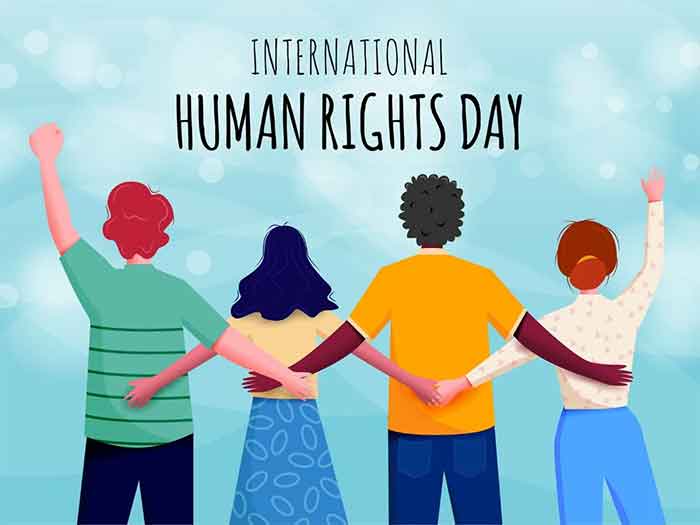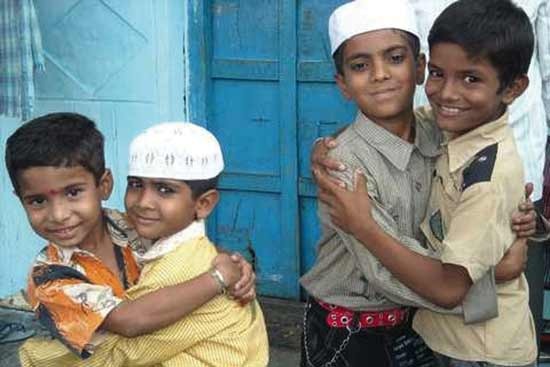
Today, December 10, is Human Rights Day.
The slogan of The Human Rights Day 2021 is All Human, All Equal.
The slogan, the message the slogan carries, the spirit the slogan upholds – all are lofty, noble, beautiful.
This year’s Human Rights Day theme, according to a UN release (Human Rights Day 10 December, https://www.un.org/en/observances/human-rights-day), is related to “Equality” and Article 1 of the the Universal Declaration of Human Rights (UDHR) – “All human beings are born free and equal in dignity and rights.”
None shall disagree with this issue of equality – born free, equal in dignity and rights. This – equality, dignity, rights – is one of the aspirations and dreams of human society that drives billions of people around the world everyday to work, to struggle, to endeavors, to experiments with science and in society.
The UN release said:
“The principles of equality and non-discrimination are at the heart of human rights. Equality is aligned with the 2030 Agenda and with the UN approach set out in the document Shared Framework on Leaving No One Behind: Equality and Non-Discrimination at the Heart of Sustainable Development. This includes addressing and finding solutions for deep-rooted forms of discrimination.”
None in today’s world shall dare to publicly pronounce: Leave one behind. Today, the world public shall not accept that pronouncement – leave behind someone.
The approach is not bad, at least as public pronouncement – find out solutions for deep-rooted forms of discrimination.
But what equality can be achieved when an economic-social-political system inherently stands on inequality, when the system thrives on inequality, when the system’s survival depends on inequality, when the system is controlled by masters of inequality?
Inequality breeds in the private property system, in exploitative relations – a minority class of persons exploiting a vast magnitude of toilers creating surplus value and appropriating that surplus value.
The recently released report on inequality (World Inequality Report 2022, https://wir2022.wid.world/www-site/uploads/2021/12/WorldInequalityReport2022_Full_Report.pdf) exhibits a lot on the unequal system:
“Global inequality rose between 1820 and 1910, and stabilized at a high level since then.”
“[T]he level of global income inequality has always been great. The global top 10% income share oscillated around 50-60% of total income between 1820 and 2020, while the bottom 50% share has generally remained around 5-15%.”
“In all cases, global indicators indicate very high inequality levels in 2020 (close to those observed around 1900-1910, and substantially larger than those observed in 1820).”
The reality of inequality is much discussed today. Today, the requirement: Identify the source of inequality.
The UN release said:
“A human rights-based economy can break cycles of poverty.
“Rampant poverty, pervasive inequalities and structural discrimination are human rights violations and among the greatest global challenges of our time. Addressing them effectively requires measures grounded in human rights, renewed political commitment and participation of all, especially those most affected. We need a new social contract which more fairly shares power, resources and opportunities and sets the foundations of a sustainable human rights-based economy.”
The issue of economy turns a bit confusing. What human rights can be based on, when the economy operates on the basis of exploitation – owner of capital appropriates all the surplus value the labor produces and just hands over a bit to the labor so that the labor survives to turn in next day to the factory for moving wheels of machines to produce surplus value?
Therefore, shouldn’t the approach be the opposite – an economy based on relations free from exploitation? That economy can ensure human rights, equality. The reason: The economy that ceaselessly drives to maximize profit curtails rights, curtails elements that can ensure human rights, cuts down the environment that can ensure human rights. As a whole, that economy is dehumanizing – man is made part of machine, man is devoured of human characteristics. How can that economy be based on human rights?
That economy not only dehumanizes. That economy also formulates everything – from ideology to law to institutions required for ensuring status quo securing profit to instruments of coercion to propaganda. With such dehumanizing character and power, no economy can be based on human rights.
A pictorial report – “In Photos: For Thousands of Mumbai Residents, Water Supply Is a Distant Dream” – by Suraj Katra in The Wire, a New Delhi-based daily news portal (December 9, 2021, https://thewire.in/urban/mumbai-water-supply-photos) shed light on the potable water situation in Mumbai. The persons, huge in number, the report told about, are all poor/near-poor, coming from the middle class/lower-middle class/working class/low income strata. Their suffering and the amount they pay for potable water are huge compared to the rich. It’s not a production, to be specific, appropriating surplus value scene. It’s a scene of distribution; and to be specific, it’s a scene of political power of a minority class and political powerless condition of a majority class. With this reality of power equation – all encompassing power of a few versus all pervading powerlessness of a huge – ensuring human rights is impossible.
It’s not a tale from a single city – Mumbai. It’s tale of cities rushing along the path of exploitation, pressing down the poor under the wheels of exploitation.
The UN release said:
“Rebuilding fairer: a new social contract
“Human rights, including economic, social and cultural rights as well as the right to development and the right to a safe, clean, healthy and sustainable environment, are central to building a new human rights-based economy that supports better, fairer and more sustainable societies for present and future generations. A human rights-based economy should be the foundation of a new social contract.”
With conflicting interests, how can classes enter into a contract? Contract is concluded between equals. Here, the exploiting classes and the exploited classes are not equal. Why shall the exploiting classes enter into any contract with the classes having no or less political power than that of the exploiting classes? Shall ever the exploiting classes voluntarily give up its position of power if not overpowered by the exploited classes? And, if the exploited classes can overpower the exploiters to renounce the power of exploitation, why shall the exploited classes enter into a contract with the exploiters instead of appropriating the exploiters’ power to appropriate?
What space is there for a fairer arrangement between the exploiters and the exploited where exploiting classes use all its powers to exploit the maximum possible? In that reality of unequal power, the suggestion of fairness sounds nice, but, essentially stands as dysfunctional.
The UN release said of [1] “preventing conflict and building resilience through equality, inclusion and human rights”, [2] “advancing the right to a healthy environment and climate justice”.
The aspiration or the call sounds nice and fair. But the reality goes against the sound. There’re an economy with conflicting interests, a political arrangement for ensuring smooth streaming of the economy, a politics for perpetuating the economy of exploitation, an arrangement surviving on exclusion of the majority from bare essentials of life. Shall that economy and that politics include that social/class force, which is its prey? Shall that economy and politics do that job of inclusion if not overpowered? It’s a mere dream if one likes to consider reality.
Imperialism is a fundamental question while considering the issue of human rights. Imperialism, on one way, uses the slogan of human rights to further its agenda of subversion, intervention, war, etc., and on the other hand, imperialism’s subversion, war, etc. crushes down all traces/possibilities of human rights in the land imperialism interferes. In the imperialist propaganda for “human rights”, obviously with imperialist motive, a type of non-governmental organizations (NGO) act as imperialism’s cohort and propaganda machine.
Is the situation frustrating, therefore?
No, way out is there. Eleanor Roosevelt tells:
“Where […] do universal human rights begin? In small places, close to home – so close and so small that they cannot be seen on any maps of the world. […] Without concerted citizen action to uphold them close to home, we shall look in vain for progress in the larger world.”
Concerted citizen action in every place – localities, communities, factories, work places, streets is the requirement for attaining and securing human rights. It has to be the factory workers, poor peasantry, low salaried employees who will cross the sectarian lines dividing people and carry the banner of equality forward.
Farooque Chowdhury writes from Dhaka, Bangladesh.















































